
Copernical Team
20 years and counting: Mars Express in numbers
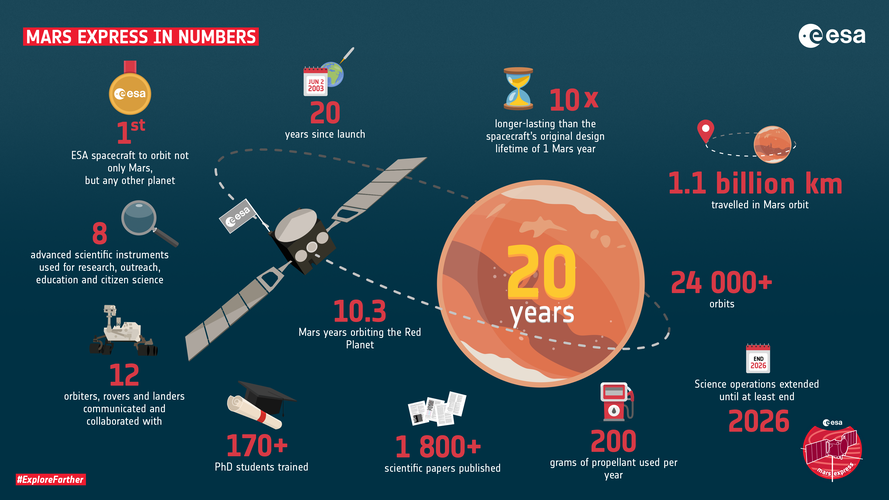 Image:
20 years and counting: Mars Express in numbers
Image:
20 years and counting: Mars Express in numbers Webb peers behind bars
 Image:
Image:
A delicate tracery of dust and bright star clusters threads across this image from the NASA/ESA/CSA James Webb Space Telescope. The bright tendrils of gas and stars belong to the barred spiral galaxy NGC 5068, whose bright central bar is visible in the upper left of this image. NGC 5068 lies around 17 million light-years from Earth in the constellation Virgo.
This portrait of NGC 5068 is part of a campaign to create an astronomical treasure trove, a repository of observations of star formation in nearby galaxies. Previous gems from this collection can be seen here and here. These observations are particularly
20 years of Mars Express: Mars as never seen before
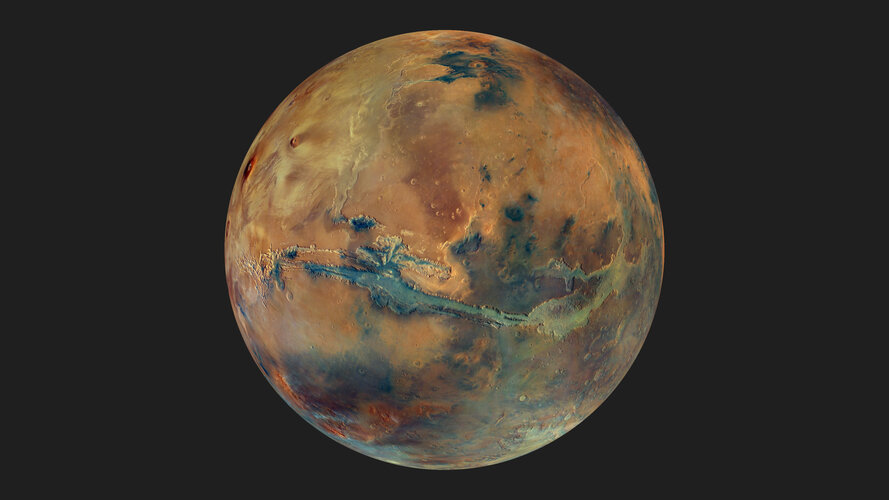
A new mosaic of Mars marks 20 years since the launch of ESA's Mars Express, and reveals the planet’s colour and composition in spectacular detail.
Mars Express milestones: two-year mission enters third decade
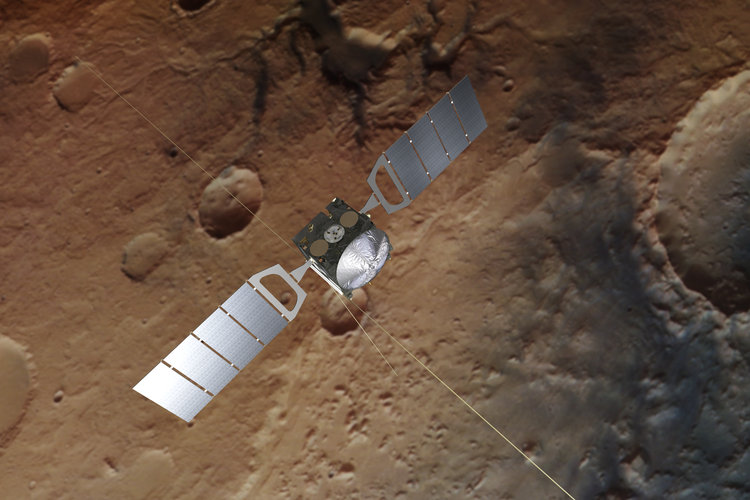
Boeing's first crewed space launch delayed, again
 Boeing has once again delayed the first crewed flight of its Starliner space capsule after discovering new technical issues, officials said Thursday.
The troubled CST-100 Starliner program has experienced numerous postponements but was finally meant to send humans on a test flight to the International Space Station on July 21.
During testing, Boeing engineers identified new issues relati
Boeing has once again delayed the first crewed flight of its Starliner space capsule after discovering new technical issues, officials said Thursday.
The troubled CST-100 Starliner program has experienced numerous postponements but was finally meant to send humans on a test flight to the International Space Station on July 21.
During testing, Boeing engineers identified new issues relati NASA's Mars helicopter went silent for six agonizing days
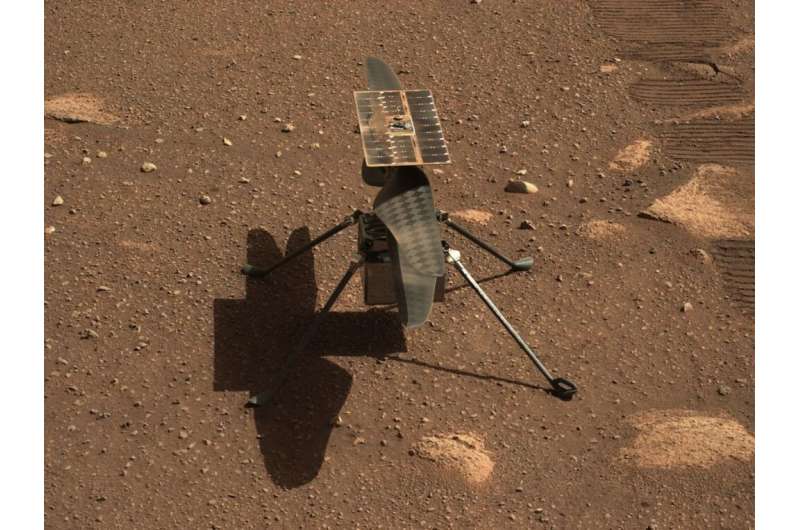
NASA's Ingenuity helicopter on Mars has exceeded everyone's expectations, recently completing its 51st flight when it was supposed to fly just a few times as a demonstration mission. But flights 50 and 51 almost didn't happen.
In a recent blog post, Travis Brown, Chief Engineer for Ingenuity shared how the team lost contact with the tiny rotorcraft for six excruciating days.
At first, they were not overly concerned when communications ceased from the helicopter on Sol 755. About a year ago, a brief two-day communication glitch occurred because Ingenuity experienced insufficient battery charge as night fell at the start of the Martian winter. This reduced voltage reset the mission clock, causing the helicopter's system to be out of sync with Perseverance rover. While the team quickly figured out the issue, because of Ingenuity's off-the shelf batteries, they expected this issue could happen again.
But now, this time was different.
Robots in orbit are becoming even more popular, but there are still many technical challenges ahead
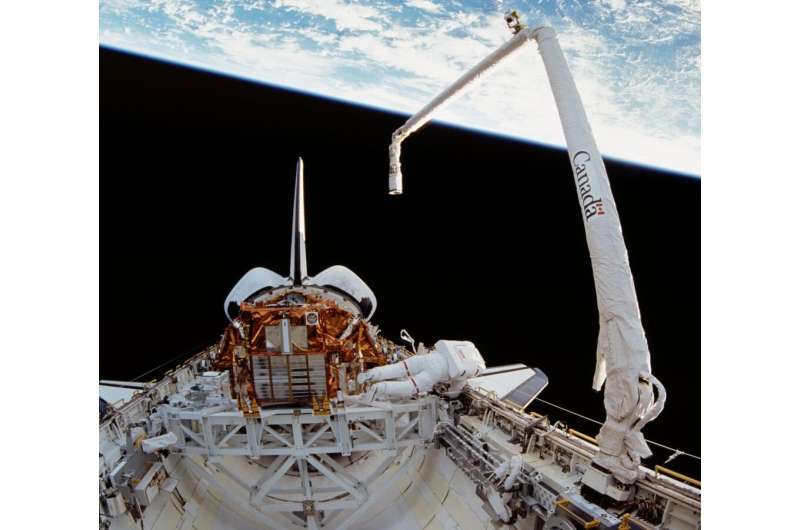
Robots will be one of the keys to the expanding in-space economy. As launch costs decrease—hopefully significantly when Starship and other massive lift systems come online—the most significant barrier to entry for the space economy will finally come down.
So what happens then? Two acronyms have been popping up in the literature with increasing frequency—in-space servicing, assembly, and manufacturing (ISAM) and On-orbit servicing (OOS). Over a series of articles, we'll look at some papers detailing what those acronyms mean and where they might be going shortly. First, we'll examine how robots fit into the equation.
Space robots have been around since 1981 when the Shuttle Remote Manipulator System (SRMS) was launched with the space shuttle, whose astronauts then operated them.
Space tractor beams may not be the stuff of sci-fi for long
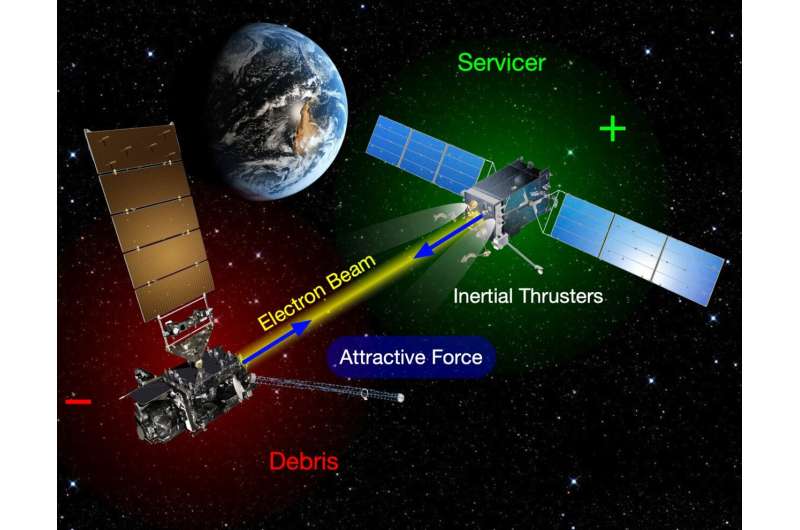
On Feb. 10, 2009, disaster struck hundreds of miles above the Siberian Peninsula. That evening, a defunct Russian satellite orbiting Earth crashed into a communications satellite called Iridium 33 moving at a speed of thousands of miles per hour. Both spacecraft erupted into a rain of shrapnel, sending more than 1,800 chunks of debris spiraling around the globe.
No other spacecraft (or humans) were harmed, but for many aerospace engineers, the event was a sign of things to come. Space, it seemed, was getting crowded.
NASA estimates that about 23,000 chunks of debris the size of a softball or larger currently swirl through space. All that junk means that another collision like the one that destroyed Iridium 33 becomes increasingly likely every year—only this time, the fallout could be much worse.
CubeMAP mission development halted
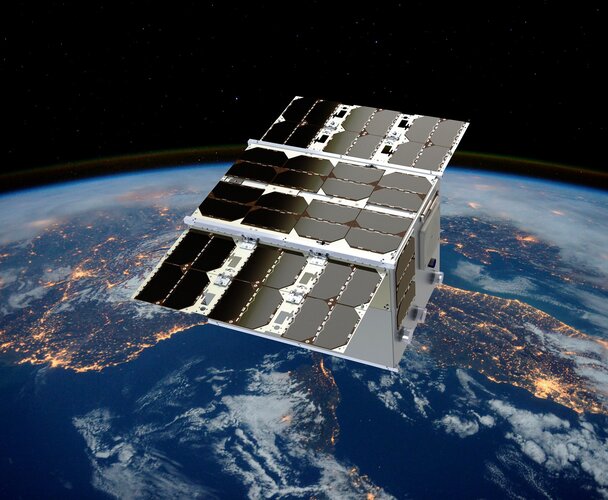
After very careful consideration, ESA’s Earth Observation Programme Board has taken the decision to terminate the development of CubeMAP as a Scout satellite mission. This decision is based on the development path exceeding the programmatic constraints related to the timeline and budgetary boundaries allocated for this category of New Space mission.

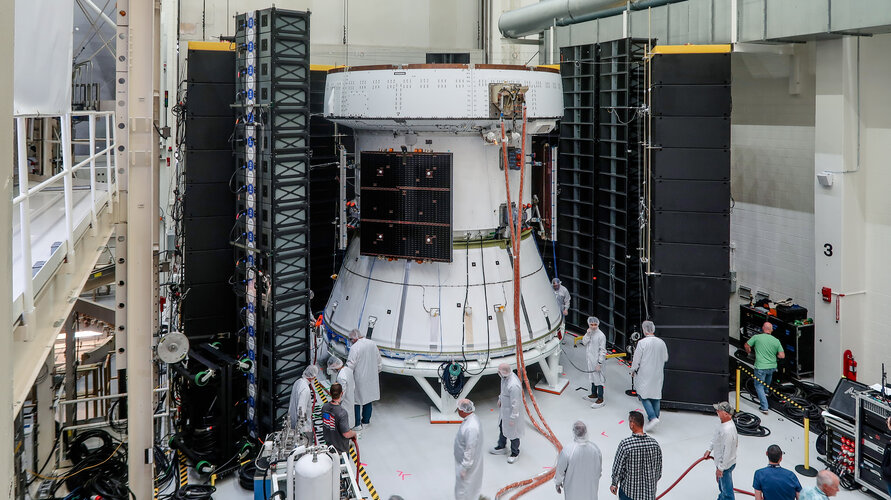 Image:
Trial by sound
Image:
Trial by sound 


































